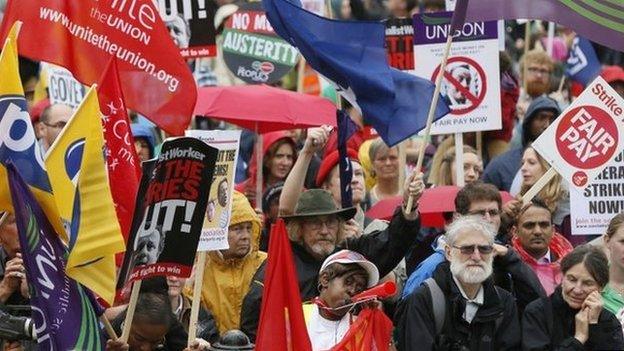Trade Union Bill: Changes an 'attack on civil liberties'
- Published
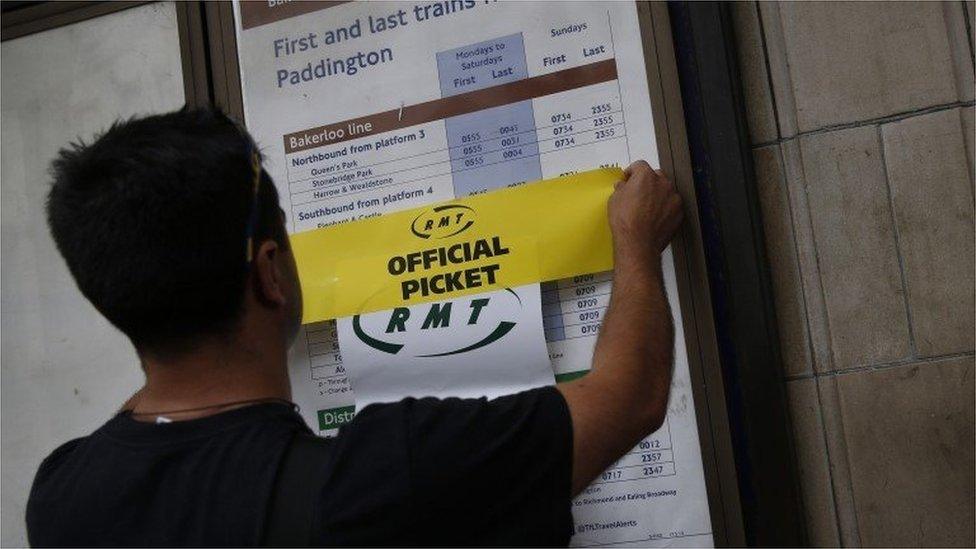
A consultation proposes the appointment of identifiable picket supervisors
The government's proposed changes to trade union laws are a "major attack on civil liberties", human rights campaigners have said.
A consultation, external on the Trade Union Bill, external raises the prospect of making picketing workers give their names to police.
The proposals have been criticised by Liberty, Amnesty International and the British Institute of Human Rights.
The government said there had to be a balance between the interests of unions and those who rely on public services.
Under the proposals, trade unions would have to appoint a picket supervisor and give them a letter of authorisation.
This supervisor would then have to take "reasonable steps" to tell police their name, contact details and the location of the picket.
They would also have to wear an armband or badge to identify them.
The consultation document said it was possible there would be a "requirement for all pickets to be properly identifiable in the same way as the supervisor".
The government said it wanted to make picket lines more transparent to reduce intimidation.
'Legal hurdles'
But the three campaign groups said in a joint statement: "The government's plans to significantly restrict trade union rights - set out in the Trade Union Bill - represent a major attack on civil liberties in the UK.
"By placing more legal hurdles in the way of unions organising strike action, the Trade Union Bill will undermine ordinary people's ability to organise together to protect their jobs, livelihoods and the quality of their working lives.
"It is hard to see the aim of this bill as anything but seeking to undermine the rights of all working people. We owe so many of our employment protections to trade unions and we join them in opposing this bill."
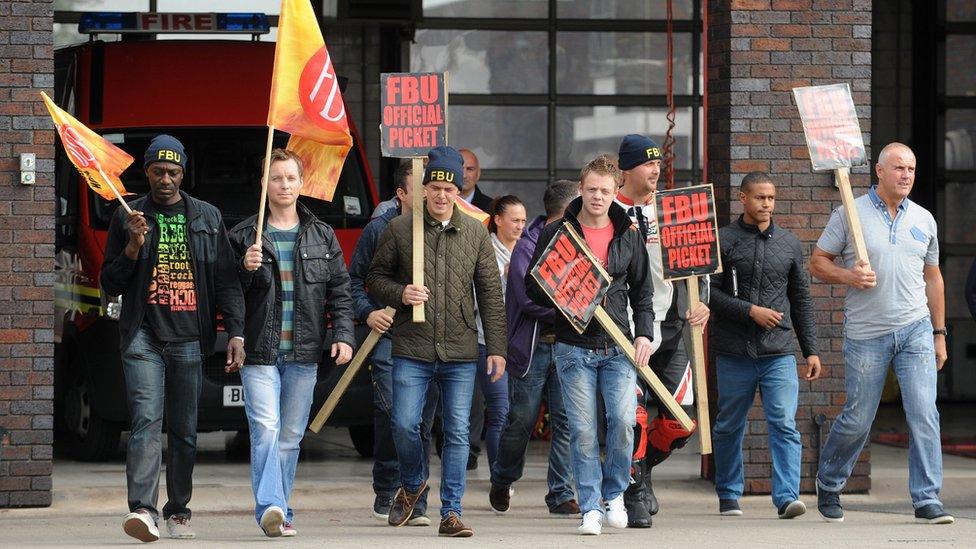
The bill would stipulate that strikes by public sector workers - such as firefighters - receive the backing of at least 40% of eligible voters
TUC general secretary Frances O'Grady said it was a "welcome and significant intervention".
Under the bill, there would need be a turnout of at least 50% before action could take place. In addition, 40% of those entitled to vote would have to be in favour in key public services such as health, education, fire, transport, border security and energy.
Union members would also have to "opt in" to political levies and restrictions on the use of agency staff would be reduced.
A Department for Business, Innovation and Skills spokesman said: "None of these changes are about banning strikes but we need to get the balance right between the interests of unions and the interests of the majority of people who rely on important public services.
"These modernising reforms will ensure strikes only happen as a result of a clear, positive decision by those entitled to vote."
- Published22 August 2015
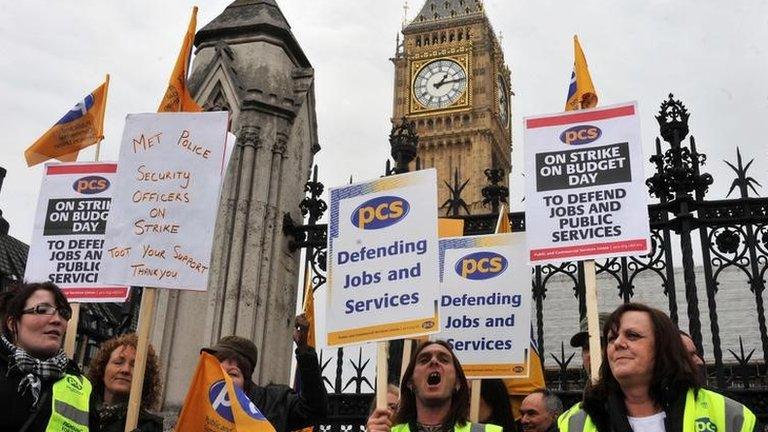
- Published6 August 2015
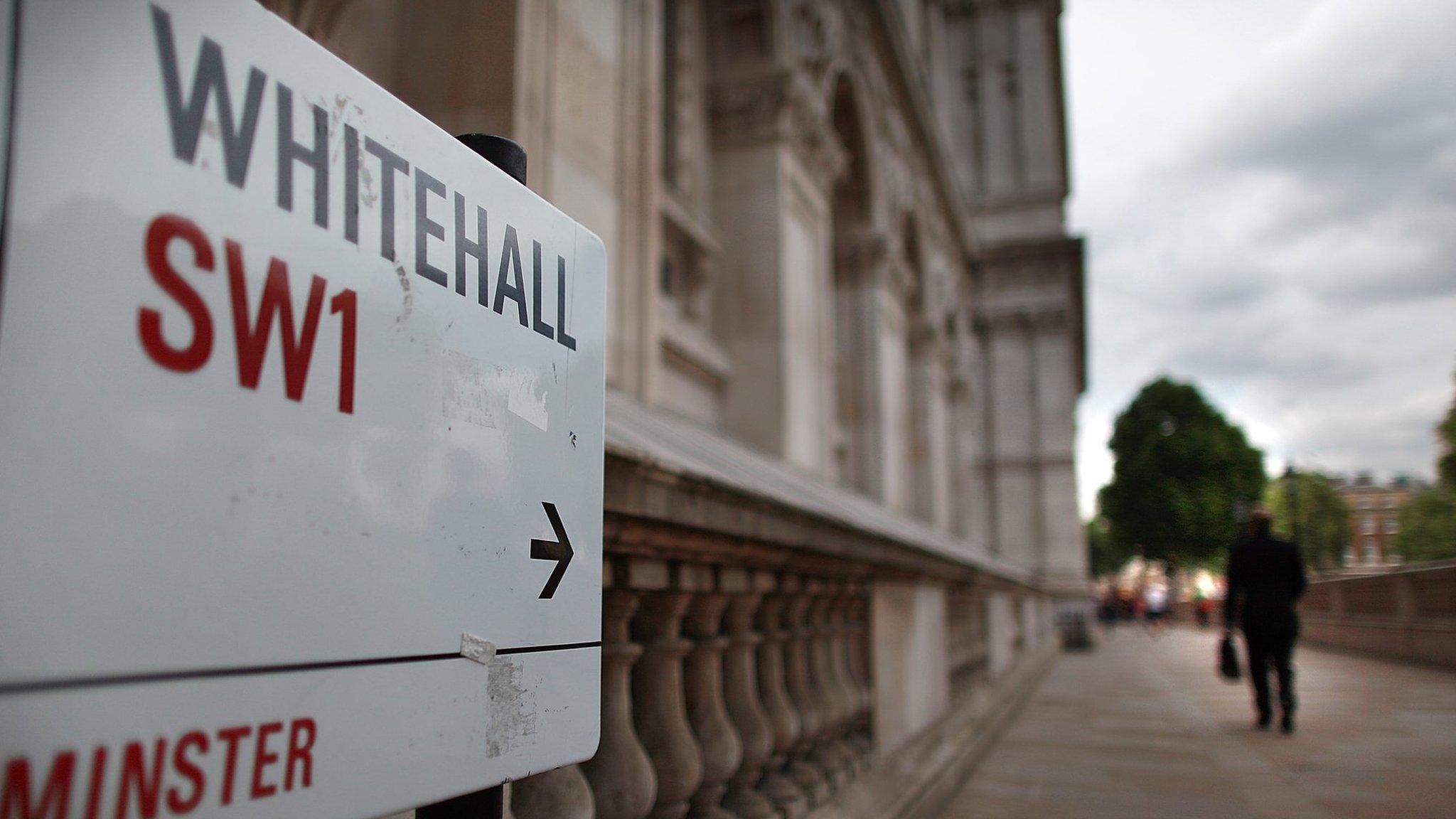
- Published15 July 2015
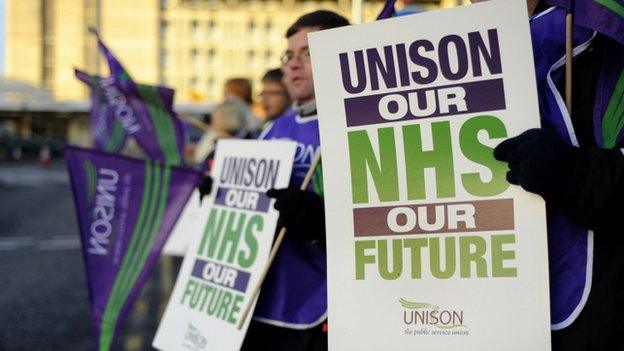
- Published15 July 2015
